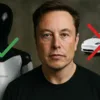In politics, economics, and even art, everything is allowed – from manipulation to bold promises that sound like science fiction movie scripts. Trump's announcements and "shocks" often resemble the techniques of Elon Musk, who, with the promise of colonizing Mars, not only created a technological empire, but also forced us to believe in the impossible. But this is nothing new. Throughout history, many leaders have set seemingly absurd demands – and then achieved or even exceeded them.
Below, we will explore how this negotiation tactic changed the world and which key stories confirm that the most unexpected maneuvers are often the most successful.
Donald Trump, who often shocks the world with his negotiating strategies. His recent demands, such as renewed attempts to obtain Greenland, an increase in NATO members' defense spending to 5 % GDP, and the establishment of American control over Panama Canal, are examples of his approach, which is based on setting high goals to achieve optimal compromises. To understand these moves, it is useful to examine Trump’s past business practices and the literature that reveals his negotiating philosophy. Similar to classic works such as Miyamoto Musashi’s “The Book of Five Rings,” where the strategy involves showing weakness to confuse an opponent, Trump uses spectacle and bold demands to strengthen the US’s negotiating position on the global stage. In this context, it is important to recognize that his moves are part of a broader strategy to consolidate American interests in the world.
1. Trump and his “market negotiations” on a global scale
Trump's political and business operations are like a constant performance on the world stage. His strategy of "mighty demand" is not something he invented himself - but he has taken it to a new level.
Greenland: strategic chess piece or political provocation?
In 2019, Trump shocked the world by announcing his desire to buy Greenland. The idea seemed absurd to many – after all, it is a Danish territory, the largest island in the world and one of the most strategically important areas due to its rich natural resources and Arctic location.
Although Denmark quickly rejected the idea, Trump's proposal was not without consequences: international attention to Greenland's geopolitical importance increased, and the United States strengthened its presence in the Arctic. Trump thus redirected attention and solidified America's position without buying the island.
Similar story: In 1867, the United States purchased Alaska from Russia for $7.2 million. At the time, critics called the deal “Seward’s Folly” (after Secretary of State William Seward), but today Alaska is synonymous with strategic natural resources.
2. Elon Musk: “Crazy promises” that become reality
Elon Musk has one clear goal that he has been pursuing for the past 20 years – the conquest of the planet Mars for humanity. Everything he has created is part of this mission. First, cars – due to the lack of oxygen, only electric ones will work on Mars. Then solar energy, which will be an essential source of energy there. Rockets that can take off and land. Building habitats using technology from The Boring Company and communication via the Starlink satellite network. To achieve this, he is developing artificial intelligence (open.ai, Tesla FSD, Starlink rocket landings) and humanoid robots (the population of Mars will be mostly humanoid robots that will build habitats), and with the Neuralink project he is looking for a way to directly communicate between humans and machines. The mission is simple: Mars. Everything has come together. And the president says, by 2029? Which is also Trump's goal, to go down in history books like Kennedy. By the end of the decade – that is, Mars. Musk really wants a planet, but it's not Earth. His clear mission is Mars.
Elon Musk is always making waves with his predictions. When he announced in 2012 that SpaceX would develop reusable rockets, many scoffed. But today, Falcon 9 rockets are regularly taking off and landing, reducing the cost of space travel and making history.
Project Starship: Colonizing Mars or Science Fiction?
In 2020, Musk announced that the first human mission to Mars would be carried out by 2029. Critics say the deadlines are unrealistic, but Musk's company SpaceX is already laying the groundwork for breakthrough technologies: rocket systems, fuel recycling, and bivouacs for survival on the red planet.
Musk’s strategy is similar to Trump’s – he understands the power of a grand promise. Creating a spectacle attracts investors, increases public interest, and creates the impression that history is being made. Just as Trump strengthens the US’s bargaining position with bold demands, Musk’s visions of the future create a space where the line between reality and science fiction is constantly shifting – all with one clear goal: to make the impossible happen.
3. Kennedy and the Moon Landing: From Words to Historic Triumph
In 1961, US President John F. Kennedy announced to the nation that the United States would land a man on the moon by the end of the decade. This was an ambitious goal, almost unimaginable given the technological advances of the time. But it was this bold promise that sparked a wave of innovation in science, engineering, and computing.
In 1969, the promise was fulfilled: Neil Armstrong took “one small step for man, one giant leap for mankind.” Kennedy’s negotiating maneuver is proof that political promises can push the boundaries of what is possible when combined with political will, scientific progress, and financial investment.
4. Napoleon Bonaparte: Great Expectations and Tactical Audacity
Napoleon Bonaparte was one of the most successful military leaders of all time – and also one of the greatest masters of psychological games. His strategy was based on quick and unexpected military moves that surprised his opponents.
The Egyptian Expedition (1798): The Search for Glory and Strategic Advantage
When Napoleon ordered the invasion of Egypt, his purpose was more than military – he wanted to weaken British influence and conquer the Mediterranean. At the same time, he did it to increase his political power at home. Although his army was defeated by the British navy, Napoleon still became a hero. Why? Because his expeditions demonstrated his audacity, knowledge and, above all, his ability to manipulate public opinion.
5. Sun Tzu: The Strategy of Diverting Attention
The ancient Chinese strategist Sun Tzu is in The Art of War taught that a commander must deceive and surprise the enemy. His guiding principle is that where you are strong, you must show weakness, and where you are weak, you must create the appearance of strength.
Trump's modus operandi follows this principle. When he threatened tariffs on China at the height of his presidency, he was accused of creating chaos. But the truth was that he was forcing China into new trade talks and securing more favorable terms for the United States.
Like Sun Tzu, Trump used “chaos” as a strategic tool, confusing his opponent while strengthening his negotiating cards.
6. Winston Churchill: Master of Crisis Negotiation
British Prime Minister Winston Churchill was known for his rhetorical courage and bold leadership during World War II. As Britain stood alone against Nazi Germany, Churchill inspired hope in the country with promises of “blood, toil, tears and sweat.”
Instead of promising a quick victory, he realistically assessed the situation and prepared the nation for a long war. Churchill's "bargaining with the people" was one of the key reasons why Britain remained strong and resilient despite adverse conditions.
7. Trump and the trade deal with China
Trump's rhetoric about a trade war with China was initially seen as dangerous and self-defeating. But his goal was to achieve greater fairness in trade relations. He used tariffs and pressure to force China to sign a phase one trade deal, which included increased purchases of American agricultural products and certain benefits for American companies.
What can we learn from these examples?
All these examples prove that the “impossible” is not always unrealistic. It is a psychological game where promises, shocking statements and negotiating demands shape reality. Whether it is Trump, Musk, Napoleon or Kennedy – they all showed that perception is more powerful than reality. Their “impossible” demands have reshaped history.
Donald Trump in his book The Art of the Deal stresses that successful negotiations start with the “biggest request”. This is not a scare tactic, but a way to instill confidence in the game and force opponents to play by your rules from the start. In reality, Trump was not looking for perfection, but for a deal that was better than the baseline – but with bold pronouncements he always made sure the public was convinced that he was aiming for the “impossible”.
But Musk is a different story. Everything he has ever predicted – from electric cars to reusable rockets – has ended up coming true. Although his deadlines are often missed, that doesn't change the fact that they are visions become realityToday, Tesla cars fill the roads, Starlink enables internet around the world, and SpaceX is the first private company to send astronauts to the International Space Station.
The next time you hear a “crazy” promise, ask yourself: Is this really that crazy? – or will it become reality? Sometimes, the one who seems “crazy” is the only one who understands that the future can only be created by going beyond the limits of the present.






